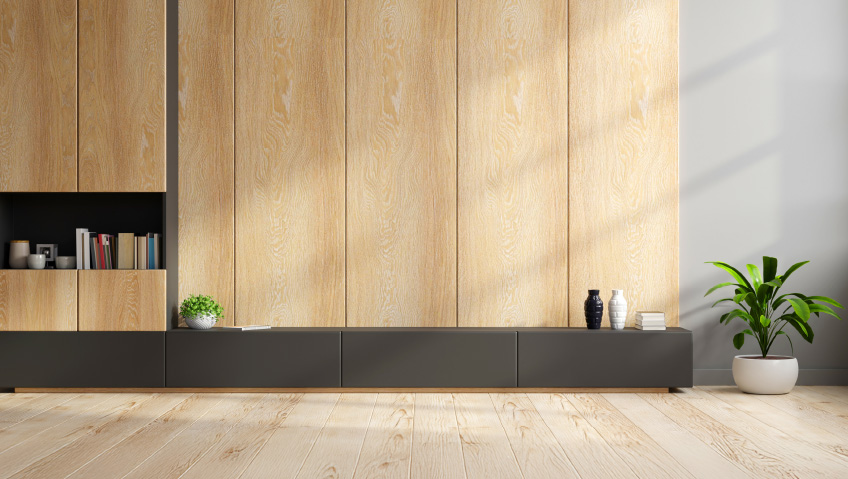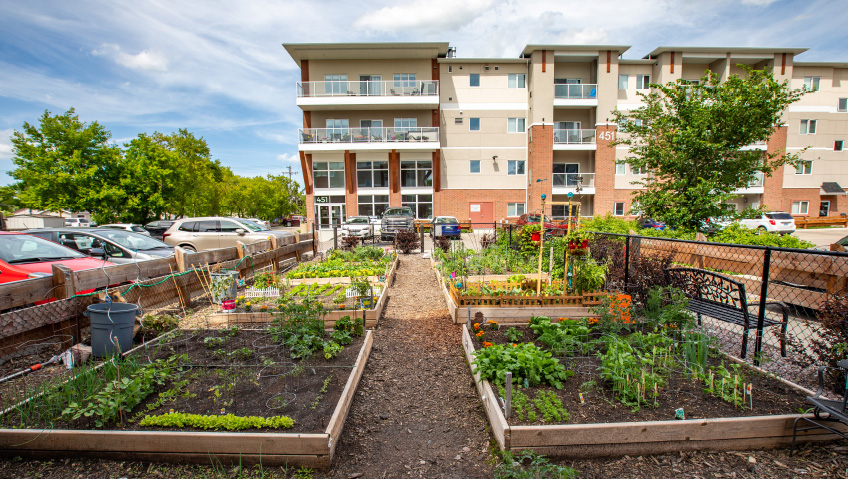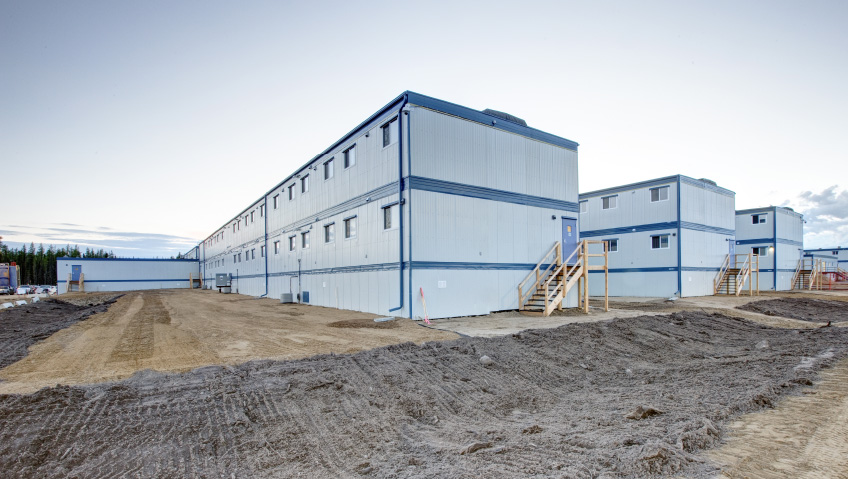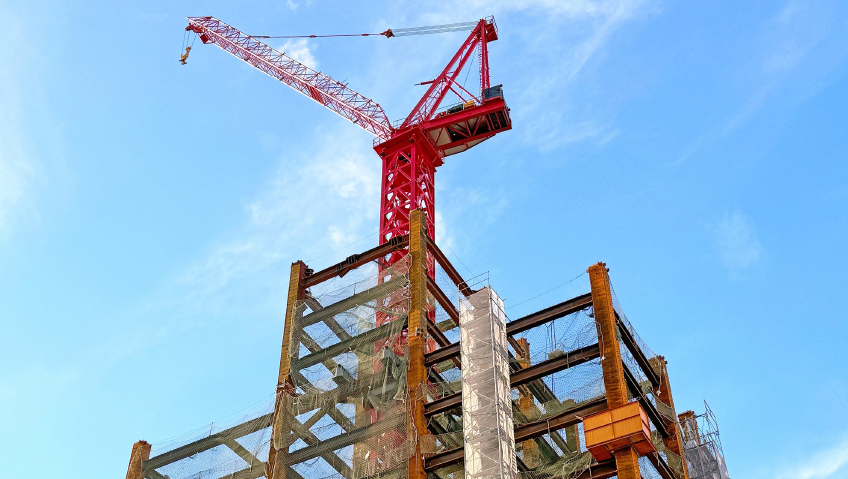Canusa Wood has passed the half-century mark as one of the leading importers and distributors of wood panel products in North America. Based in Vancouver, BC, the company purchases a variety of hardwood plywood and composite panels among other wood-based wares from a global network of mills. These wood panels are then used for residential and commercial millwork, furniture, and marine applications.
“What’s kept us going for 50 years and helped us be successful is the strength of our mill relationships overseas. A large portion of what we sell is imported from mills around the world, so these relationships are integral in our staying power and future growth. We also sell product made in Canada and the U.S., albeit a smaller portion compared to imported products, but we see that expanding in the coming years,” states company co-owner and president, Ross McLaren.
Canusa works with over 100 mills based in over 20 countries, primarily in Asia. The company also maintains 16 warehouses located in Canada and the United States and has two offices based in China.
In addition to its mill network, Canusa’s commitment to customer service has helped the firm survive and thrive over the decades, says Dempsey Goedbloed, Vice President of Sales and Marketing. “Some of our values are reliability, accountability and transparency. With these values in mind, we are able to provide our customer base with an outstanding service,” she says. “We are on the forefront of things so if there are things happening in the world, we will inform [our clients] and come up with a plan together.”
Full-time teams at Canusa handle the complicated logistics and compliance issues that stem from having an international supplier base. All mills used by the company have been carefully vetted to ensure they meet quality benchmarks and compliance regulations, and overseas staff scrutinize all products before they’re transported across the Ocean. “Virtually every panel that ships into Canada or the U.S. is inspected by our team,” says McLaren.
Canusa uses tracking technology to follow shipments while an in-house computer system at head office keeps tabs on all aspects of quality control. Once shipments arrive in North America, logistics staff oversee the timely delivery of wood panels to Canusa’s warehouses, and from there to distributors and customers. Needless to say, scheduling is something of an artform for this team.
“The material we’re buying overseas could take three, four, five months to get into Canada and the U.S. We have to project those dates in advance to our customers and it’s our job to be as accurate as we possibly can,” McLaren explains.
Orders can be customized as per client request (the team excels as “coming up with tailored solutions to certain specifications,” says Goedbloed). The company also embraces sustainability, both out of environmental concern and as a way of bolstering its long-term prospects. Working with partners that follow sustainable practices emphasizing forest renewal is a way to safeguard future timber supplies.
The business began in 1975 when MacMillan Bloedel of Canada and Montague Meyer International and Jardine Matheson of the United Kingdom teamed up to form a joint venture. Initially called MacMillan Jardine North America, the fledgling company established its headquarters in Vancouver (“the gateway to Asia,” as McLaren describes it). The company purchased wood-based products primarily from Southeast Asia then shipped them across Canada and the West Coast of the United States, primarily Washington State and Oregon.
Maintaining quality standards in the days before email, text, pdfs, and digital photos and videos—much less overseas staff members—was quite a challenge, recalls McLaren. In the early years of the business, “they didn’t have graders outside of the offices… So, anyone sitting in Vancouver had to fly to the Philippines or Indonesia to look at the material, do quality control, make the decision on what to buy, bring it back, then get feedback from customers and potentially do it all over again,” he says.
The business adopted its current name amid ownership changes in the early 1980s. After much trial and experimentation with different product lines, the company decided to focus on plywood. This proved to be a profitable move, and Canusa’s operations expanded, particularly in China. An overseas office was opened in Suzhou, China in 2006. A decade later, McLaren and Jeevan Manhas (who is currently CEO) assumed ownership and forged ahead. A second China office opened in the city of Dalian in 2023.
While wood-based panels remain central to the business, Canusa “can cover multiple levels of customers—the low-end, mid-end, high-end. We have products for everyone and for many applications and industries,” states Goedbloed.
The company employs approximately 50 people at present, 28 of whom work in North America. Anyone who wants to join the team needs to be competent, energetic, and a proper fit. “We’re looking for people who are excited to be here and want to work hard and are interested in this industry, because there are a lot of opportunities,” McLaren shares.
In addition to career advancement, there is still quite a bit of travel involved in the plywood market (despite modern communications technology, co-owners McLaren and Manhas continue to fly around the world for business purposes). It’s also important to understand the economies and cultures of other nations as well as global trade issues.
The current staff features a “blend of experience and youthful enthusiasm… We’ve got a fantastic group of people and a sales [team] that works very hard and travels frequently to see their customers,” McLaren says.
The company promotes itself through regular attendance at trade shows. These include the International Woodworking Fair (IWF) and conferences organized by the North American Building Material Distribution Association (NBMDA), Association of Woodworking & Furnishings Suppliers (AWFS), and International Wood Products Association (IWPA). Trade shows are Canusa’s “main source of incoming leads,” says Goedbloed.
Of course, operating an international business in the wood sector comes with its own set of challenges. On May 22 of this year, the Coalition for Fair Trade in Hardwood Plywood filed anti-dumping duty (ADD) and countervailing duty (CVD) petitions regarding plywood imports from China, Vietnam, and Indonesia. The petitions were filed with the U.S. Department of Commerce (DOC) and International Trade Commission (ITC). An advocacy group representing American plywood manufacturers, the Coalition claims that Asian nations are engaging in unfair trading practices within the United States. DOC and ITC investigators are going to be examining the issue.
Fortunately, Canusa is flexible and able to pivot in response to such developments. “We’re having to adjust our supply chain quickly and dramatically, and this is where our overseas teams show their value even more. Their network of mill relationships around the world… is absolutely invaluable,” says McLaren. “They are traveling around the world—mainly in Asia but not exclusively—to find alternative products that meet our [expectations] and our customers’ expectations.”
He adds, “We’ve been through this two times before in the U.S. on Chinese plywood, and after each time we came out stronger with new product offerings, and we expect to do the same this time.”
McLaren is referring to a pair of similar legal challenges involving Chinese plywood exports to the U.S. These previous battles, which occurred in 2013 and 2017, helped kickstart product development at Canusa. Following the 2017 case, the company introduced Premcore Plus, a high-end, lightweight alternative wood panel from Indonesia prized for its clean edge (a product called Premcore had been available in Canada since 2004). Premcore Plus was followed two years later by Kingcore, a premium imported wood panel made to meet domestic plywood benchmarks.
The goal for all three products was “to meet or surpass U.S. plywood quality levels. The feedback we get from our customers that use it on a regular basis, based on quality points such as thickness, tolerance, core quality, and flatness, was that our quality does surpass certain domestic-made plywood products,” recounts McLaren.
So far, the company has not been impacted by the latest round of tariffs within North America “because wood products are excluded from reciprocal tariffs,” he says. That said, American regulators will be investigating wood product derivatives to determine the impact, if any, that trade in these goods has on U.S. national security.
Looking ahead, Goedbloed says, “in the future, maybe we’ll have an e-commerce system where customers can buy online and check inventory.” The company has also pondered the possibility of becoming more vertically integrated, and offering manufactured wood-based wares such as cabinets, tables, desks, and more in addition to panels. For the time being, however, there are no plans to add brand-new services or products; instead, Canusa staff are focused on expanding the company’s market reach.
“Right now, growth is top of mind for everyone here. We talk about it constantly. The next five years are all about growth for Canusa, whether it’s expanding market share in areas we are already selling or gaining more market share in places where we’re not active yet,” says McLaren.
That said, growth for growth’s sake is not in the cards. The aim is to expand while still maintaining Canusa Wood’s sterling reputation for quality and service. “Our goal is to not necessarily be the biggest importer of panel products in Canada and the U.S., but to be the best at what we do compared to our competition,” says McLaren.






